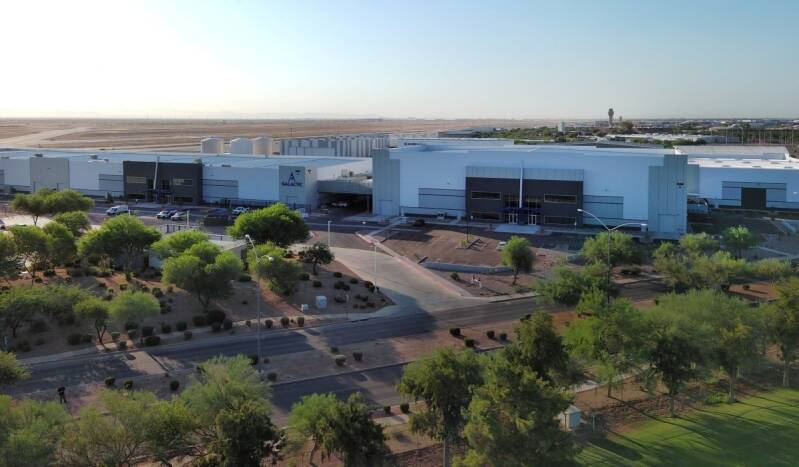Virgin Galactic says development of its next-generation Delta-class suborbital spaceplanes remains on track, with commercial flights projected to begin by the middle of next year and ticket sales likely to reopen in early 2026.

Credit: Virgin Galactic
During a May 15 earnings call, Virgin Galactic CEO Michael Colglazier detailed the company’s progress on the assembly of its new fleet, emphasizing advancements in structural components, propulsion systems, and avionics. "An enormous amount of work is taking place across our company as well as our key suppliers," Colglazier said. A newly released video also showcases the assembly efforts, with the company planning to launch regular update briefings starting in June.
Test flights for the Delta-class vehicles are expected to begin in spring 2026, followed by commercial missions carrying research payloads in the summer. Flights for private astronauts are scheduled to start by fall.
With that timeline in place, Virgin Galactic is preparing to restart ticket sales in the first quarter of 2026. Customers will be onboarded in phases through a curated “white glove” experience, allowing the company to manage demand and fine-tune pricing. While new ticket prices have not yet been announced, they will exceed the previous $600,000 price point.
The company is also evaluating a potential expansion to Europe, conducting a feasibility study on launching spaceflights from a southern Italian airport. The study focuses on defining airspace requirements, which will be influenced by flight paths and local weather conditions.

Virgin Galactic plans to start assembling Delta-class suborbital spaceplanes in a new facility near Phoenix. Credit: Virgin Galactic
Beyond tourism, Virgin Galactic is exploring alternate applications for its carrier aircraft, which is used to launch the spaceplanes. With capabilities for high-altitude, long-endurance missions carrying heavy payloads, the aircraft could be repurposed for intelligence, surveillance, and reconnaissance operations. The company has been in talks with the U.S. Department of Defense and other aerospace partners, with Colglazier citing “multiple opportunities” linked to national security efforts like the Golden Dome missile defense initiative.
Financially, Virgin Galactic reported $0.5 million in revenue for the first quarter of 2025 and an adjusted EBITDA loss of $72 million. However, CFO Doug Ahrens noted that the company has passed the peak of its capital spending on Delta-class development. "We’re pleased that the peak spending is behind us," Ahrens said, indicating that quarterly expenditures are expected to decline through the end of the year as the company transitions into full-scale vehicle assembly.
Virgin Galactic’s next chapter in space tourism and defense collaboration appears to be accelerating, with a clear roadmap now unfolding for its return to commercial spaceflight.


Add comment
Comments